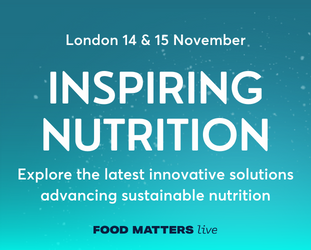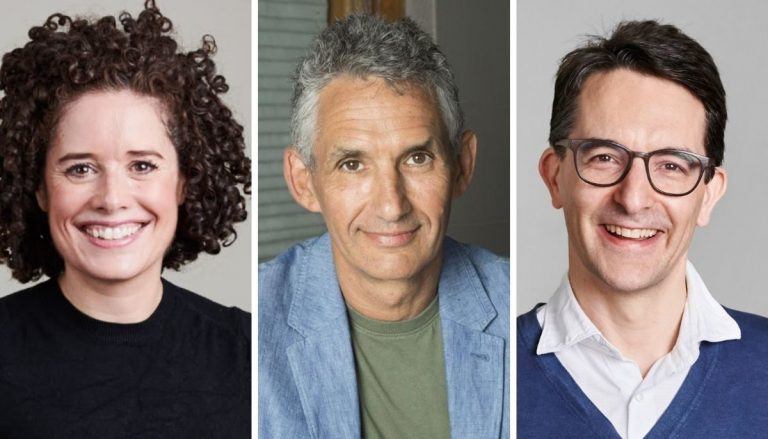Ditch the diet and listen to your body: Nutritionist Laura Thomas on intuitive eating

“I’ve always had this sort of nonconformity streak to me,” the nutritionist Laura Thomas tells me over a video call from her living room. “That’s kind of like my personal brand.”
Like most other wellness and health experts, Thomas has a special formula. You can find out all about her unique approach through her podcast or book. But unlike others, what Thomas preaches is profoundly simple and modest: ditch the diet.
“Diet culture normalises body comparison, body shaming, body checking, and disordered eating,” she explains. “It just kind of sweeps these problematic things under the carpet and says, ‘Hey, this doesn’t exist, this doesn’t matter’.”
Thomas’s approach runs counter to most of the other dietary advice out there. She believes that in order to have a better attitude towards our bodies, we must understand how nutrition actually works. That to live a healthy lifestyle we should unlearn everything that we, as a society, have gleaned as to what a healthy body looks like. For Laura Thomas, we should listen to our bodies rather than what everyone else tells us.
Known as intuitive eating, the idea of listening to our bodies’ needs rather than imposing a rigid structure of whatwhat we should and shouldn’t eat, isn’t anything new. First coined in 1995 by dieticians Evelyn Tribole and Elyse Resch, who noticed in their clients what science has since backed up: if one loses lots of weight one is likely to put it all back on. Since then intuitive eating has gone even further. Now, it’s a form of self-care; a defence against Atkins and other anti-carb regimes; a way for people to focus on their relationship with food without worrying about their weight or feeling guilty.
Thomas describes intuitive eating as being in the middle of the Venn diagram between nutrition and counselling. “I’ve always had an interest in the psychology behind eating,” Thomas adds. It’s the basis behind all of her work. On her podcast Don’t Salt My Game, Thomas dives into the latest wellness trends – both for good and worse.
Her book Just Eat it: How Intuitive Eating Can Help You Get Your Shit Together Around Food, written and published during the pandemic, is a plain-talking guide to unlearning diet culture that gets back to basics with nutrition and health. Written how most of us wish we could speak to our former teenager selves, her advice is practical and clear and it debunks ideas on how we should be feeding ourselves. For Thomas food is more than a points system. It shouldn’t be stressful or force us to overthink everything that crosses our lips.
She first noticed perfectionism around food in the one-on-one sessions at her private clinic in London. “We could spend all day talking about the different, wild things that I’ve heard in [my] clinic,” she adds. Her clients’ main problem wasn’t that they were breaking the rules, it’s that they were sticklers for them, layering every dos and don’ts, from every diet they’d followed, right on top of each other. “People were really confused, you know, about what to eat and when to eat and how much to eat, and they would follow all of these external rules.”
These are the same rules that Thomas learned about during her nutrition training. At that point, she realised that if she continued to reinforce the same set of rules and messages, she’d actually be stopping her clients from having a good understanding of nutrition.
She noticed that when patients jump around from one diet to another, they tend to take the rules from one and apply them to the next, without much thought. “I had one patient who was concerned about the minutiae of difference between peanut butter and almond butter. So from a nutrition perspective, I’m like: it doesn’t matter which one is your preference. But they had read something online about, I don’t know, the composition of fatty acids or something like that. And it had really kind of mess with them, and they wanted to try and be perfect.” Thomas describes it as a merry-go-round, where people layer diet after diet on top of each other to the point where they can’t get off.
During lockdown Thomas, her partner and their newborn baby spent time in their flat in East London, eating sourdough bread and cooking, just like most.
Thomas describes herself as being on semi-maternity leave and during our interview, she occasionally pauses to listen out of any cries as her baby is fed in the room next door.
The family lunches are like any other with a baby: “The walls are painted with food. He’s just dropping or throwing food as far as he can. He likes to stick his whole hand in his cup of water. Yeah, it’s nice, but it’s challenging.”
In a recent appearance on the comedian Sofie Hagen’s podcast Who Hurt You?, Thomas admitted she was struggling to breastfeed her baby and said that as a nutritionist that should be the one thing in the world she should know.
Despite studying Health Science at the University of Aberdeen and going on to Texas A&M University, Washington, D.C. and then becoming a post-doctoral researcher at Cornell University before opening her private practice, Thomas isn’t immune to the messages around how to eat well that we can all succumb to. Like everyone, she’s a product of the society she was raised in.
Growing up in Aberdeen, Thomas described herself as a bigger child.
During her teenage years, she discovered diets which quickly led her on the path to disordered eating. The rhetoric around body size from the media and everyone else around her was so ubiquitous that Thomas didn’t even recognise she had a skewed relationship with food until well into her twenties: “Growing up, I heard so much body talk. People around me were on diets. The Atkins I remember, was in our household at one point.”
Going on to study nutrition didn’t heal how Thomas thought about food and her own body. In fact, she thinks it probably exacerbated it. She says she “probably got into nutrition for the wrong reasons.”
“A lot of what we teach and do in nutrition is messed up,” she explains before going on to recall how her and her fellow students at university were tasked to keep food diaries and measuring each other’s bodies with callipers. Thomas goes on to cite a study from 2017 that found that almost 50% of dieticians and nutritionists in America were at risk of developing disordered eating or orthorexia for themselves.
Orthorexia is an eating disorder defined as a fixation on righteous eating, although it’s not included in the DSM – the manual for defining mental illness. In practice, orthorexia manifests itself as over restricted eating, obsessive attitude towards healthy eating. Another study published in 2012, showed there is a higher level of disordered eating among athletes, caused by their rigid dietary habits aimed at enhancing their performance.
In both nutritionists and athletes, it seems the common denominator might be exposure: the more interested in health and nutrition one is, the more susceptible one might become to obsessive behaviour around food. Thomas says part of the problem is that humans struggle with nuance: “Particularly in the age of social media and sound bites, headlines and click bait articles.”
Her rationale is that people have evolved to depend on each other. To put stock in what other members of our communities think of us and how they perceive us because we relied on others: “If we didn’t fit in and keep up with the rest of the pack, as it were, then we would be rejected, we’d be left behind. That’s an evolutionary mechanism that’s there to protect us.” Although we know the ideal body image peddled by magazines, the fashion industry and now social media is difficult, if not biogenetically impossible, for most of us to obtain, many still strive for it.
That rigid attitude towards food is what Thomas is keen to see fall part. “What we’re doing [with intuitive eating] is, I suppose, using it in a way that’s supportive and judicious. As opposed to what we typically see in nutrition, which is a very black and white, rigid, all or nothing approach to food.”
When asked if she had to throw out the rulebook and start from scratch, Thomas says it was more a process of undoing the rulebook and doing “an awful lot of unlearning”. She embraced a gentler approach to nutrition: “It’s not like we are rejecting nutritional science or sort of suggesting that it’s irrelevant or unhelpful in any way.”
As easygoing a philosophy as it sounds, she backs up every claim with rigorous science and logic. Untraining your brain is as much as a mindset as coaching: “Thinking about my training and the things that were instilled to me, there was always something that didn’t quite fit right. It’s difficult to sort of put my finger on what it is exactly.”









